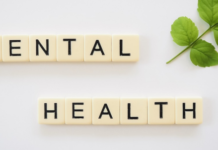The human body is a complex organization of frameworks, and one essential association that has acquired critical consideration as of late is the complicated connection between the stomach and the mind. The complex communication highway known as the gut-brain connection is crucial to maintaining overall health. In this blog, we’ll dig into the essentials of stomach wellbeing, investigating what this association means for our stomach related framework as well as our psychological and close to home prosperity.
The Colon: The gut, also known as the gastrointestinal (GI) tract, is home to trillions of microorganisms that make up the gut microbiota. These microorganisms, which include fungi, viruses, bacteria, and other microbes, make up a diverse ecosystem that has a direct impact on our health. Keeping a fair and various stomach microbiota is fundamental for legitimate processing, supplement ingestion, and in general resistant capability.
Stomach Cerebrum Correspondence
The correspondence between the stomach and the cerebrum happens through the stomach mind pivot, a bidirectional flagging pathway including the focal sensory system (CNS), the intestinal sensory system (ENS), and the stomach microbiota. The ENS, frequently named the “second cerebrum,” is a mind boggling organization of neurons implanted in the coating of the GI plot, fit for working freely of the CNS.
Various physiological processes, including digestion, metabolism, and even mood, are influenced by this intricate network, which enables constant communication between the gut and the brain. Neurotransmitters, which are chemicals that the brain uses to send messages, are also found in the gut, where they play a crucial role in this two-way communication.
Impact on Mental Health The connection between the gut and the brain has significant effects on mental health. Recent research suggests that mental health conditions like anxiety and depression may be exacerbated by dysbiosis, a imbalance in the microbiota in the gut. The stomach produces synapses like serotonin, frequently alluded to as the “cheerful chemical,” and disturbances in the stomach cerebrum hub can prompt changed serotonin levels, affecting mind-set and close to home prosperity.
Short-chain fatty acids (SCFAs) are also produced by the gut microbiota during the fermentation of dietary fiber. Neuroactive compounds that have the potential to affect how the brain works have been linked to the production of SCFAs. Subsequently, keeping a sound stomach microbiota through a decent eating routine wealthy in fiber and probiotics may decidedly affect emotional wellness.
The connection between the gut and the brain is important for digestive health as well as mental health. Stress and profound states can influence gastrointestinal capability, prompting side effects like heartburn, bulging, and adjusted gut propensities. On the other hand, stomach related issues, like touchy inside condition (IBS) or provocative entrail infection (IBD), can influence mental prosperity, making a corresponding relationship.
- Effortless Ways to Improve Gut Health Changes to the diet: Include a wide variety of fruits, vegetables, whole grains, and foods that have been fermented in your diet. The microbiota in your gut and your health as a whole are supported by these foods’ essential nutrients.
- Probiotics: Think about including fermented vegetables, yogurt, and other probiotic-rich foods in your diet. Probiotics can assist with keeping a good arrangement of stomach microorganisms.
- Intake of Fiber: Whole grains, legumes, and a variety of fruits and vegetables are all good sources of fiber. Regular bowel movements and the growth of beneficial gut bacteria are both aided by fiber.
- Reduce Stress: Practice pressure decreasing strategies like contemplation, profound breathing, or yoga. The gut-brain axis can be negatively affected by chronic stress.
Recognizing the connection between the gut and the brain is an essential first step toward prioritizing our overall health. We can positively influence our mental and digestive well-being by consuming a well-balanced diet, supporting a diverse gut microbiota, and managing stress. Taking little, careful moves toward further develop stomach wellbeing can prompt huge advantages for our whole body, underscoring the significance of this mind boggling association in keeping a solid and blissful life.



